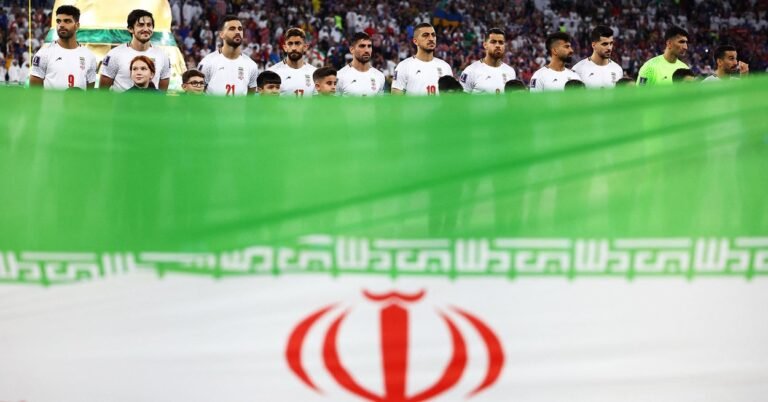We know how the match ended, with the US winning by one goal. But even as I watched my American brethren succeed, keeping hope alive that maybe this could be the year the US men’s soccer team advances past the opening rounds, it occurred to me that I was cheering on the villain who ends the journey of this World Cup’s plucky protagonist. Iran’s people care more about soccer than the US’s, and Iran’s players are risking more than any other team to condemn injustice at a World Cup clouded by human rights abuses and suppression of dissent.
Host nation Qatar built stadiums under labor conditions that have left 6,500 migrant workers dead since 2010, maintained laws that criminalize homosexuality, and restricted media from filming in areas that could illuminate labor or living conditions around the country. FIFA, the organization in charge of the World Cup, has defended Qatar’s effort to keep politics out of sight. It prohibited the rainbow armbands that players from seven countries were planning to wear. Instead, Germany’s players took a photo with their hands covering their mouths, England’s players briefly took a knee before the start of their games, and Wales hung a rainbow flag at its training facility.
The players’ protest dilemma reflects a quandary growing more urgent at a time of overlapping crises across the globe, as people navigate harmful institutions, complicit in sins that are rarely easy to detangle from. Though I am aware of Qatar’s human rights abuses, I contribute to the World Cup’s television ratings anyway because watching the games brings me too much joy to pass up. So far, players have taken the prudent route, speaking up as much as they can without damaging their chances of participating in and winning matches.
But what if those players took the field in the rainbow armbands, daring the officials to disqualify them? An act of censorship eliminating teams from competition would be the biggest story in the world, accompanied by a wave of mass outrage. Maybe more teams would have joined in solidarity, and more games canceled, tanking the television ratings enough to make FIFA regret bringing its lucrative tournament to Qatar. Maybe the spirit of protest would have carried over into the next World Cup in 2026, which will feature games here in the US, where recent laws have denied rights to LGBTQ people and restricted abortion access. Unlike the Iranian team, the European players haven’t risked their privilege. US players, who said they had nothing to do with the USSF tweet, haven’t been part of any protest effort this World Cup.
Politics, after all, is not what someone signs up for when they devote their lives to sports. Sport is supposed to be an escape from real-world ills, an outlet that channels emotions toward outcomes with much lower stakes than civil rights, economics, and war.
Yet part of what makes the World Cup so exciting is that serious geopolitical issues are inextricable from fans’ investment in the competition, shaping the literal existence of the nations competing. Uruguay hosted and won the first World Cup in 1930 with a victory in the final against Argentina, the country it once shared a federation with after gaining independence from Spain in the early 19th century. Brazil, which gained independence from Portugal in 1822, won three World Cups with Pelé from 1958 to 1970, then another in 1994. West Germany won three World Cups during the decades of partition, and Croatia reached the tournament final for the first time 27 years after the dissolution of Yugoslavia. In 1998, far-right French politician Jean-Marie Le Pen said that his country’s team wasn’t truly “French” because its players came from so many ethnic backgrounds, only to then witness France win its first World Cup thanks to the brilliance of Zinedine Zidane, of Algerian descent, Thierry Henry, of West Indian descent, and Patrick Vieira, who was born in Senegal.


